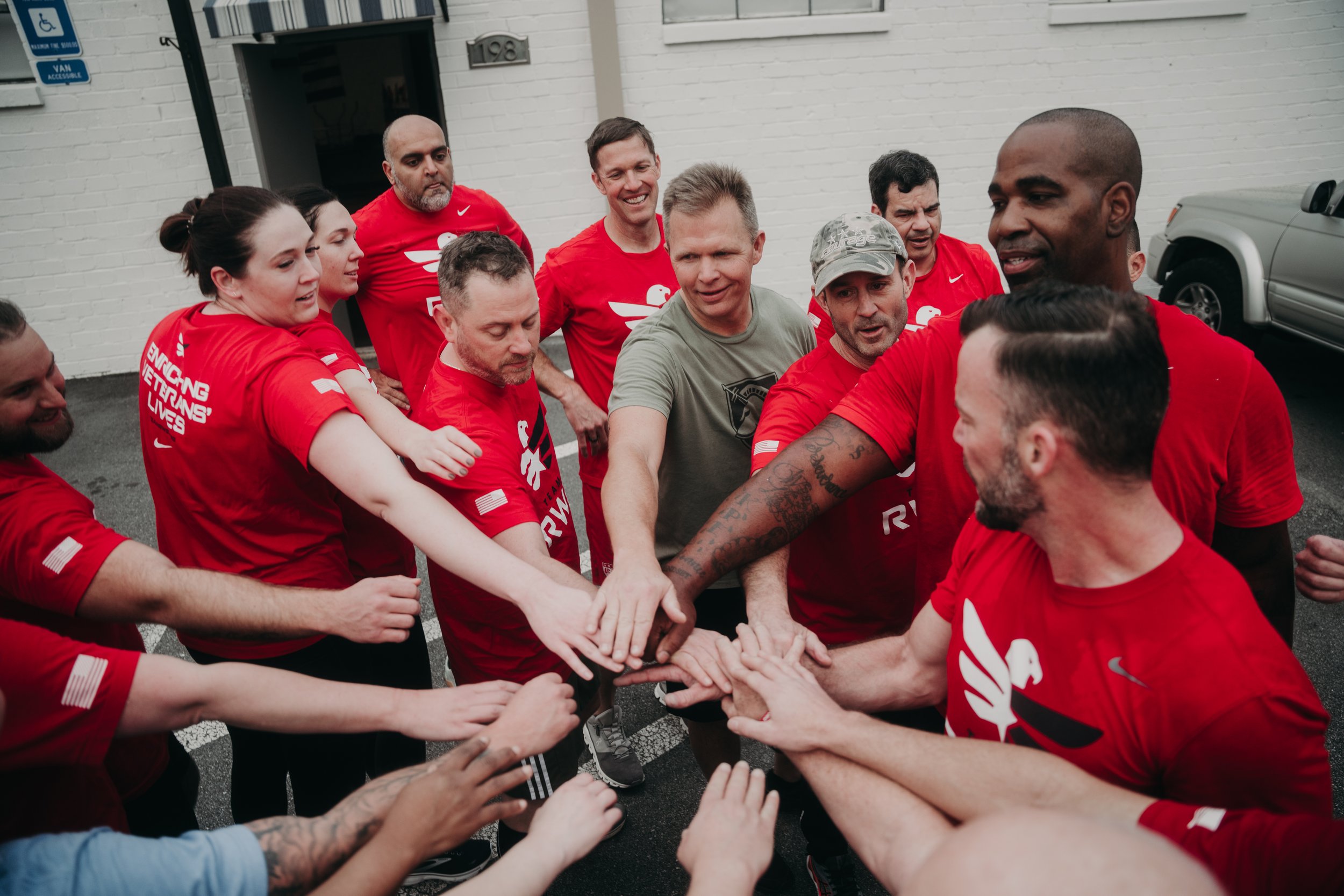7 Powerful Mental Health Benefits of Exercise for Veterans
Veterans after taking on a workout together at our Veteran Resource Convening (VRG), 2023.
As Veterans and Service Members, you know the importance of physical fitness. But did you know that exercise is also a powerful tool for mental health? Let's explore how.
7 Key Mental Health Benefits of Exercise for Veterans
1. Combat Anxiety and Depression
Exercise is your body's natural defense against anxiety and depression. It releases endorphins, boosting mood and fighting negative thoughts. Studies show regular physical activity can be as effective as medication for mild to moderate depression.
Note: While exercise helps boost your natural defense against anxiety and depression, it is not a substitute for treatment from a licensed professional. If you have been diagnosed with anxiety or depression, consult your therapist or doctor. Exercise may be a great addition to your current treatment plan. If you need mental health support, connect to care through Check-In. They’ll help you find a licensed mental health professional who can help you.
2. Improve Sleep Quality
Poor sleep can compromise mental health. Regular exercise helps regulate your body's internal clock, leading to better sleep and improved mental readiness.
3. Enhance Brain Function
Physical activity increases blood flow to your brain, sharpening cognitive function and memory. It's like field training for your mind, keeping you alert and prepared.
4. Manage Stress Effectively
When you exercise, your brain releases norepinephrine, which helps manage stress. It's your first line of defense against daily pressures and challenges.
5. Build Emotional Resilience
Regular physical training strengthens your emotional core. It builds mental resilience, helping you bounce back from emotional challenges faster and stronger.
6. Boost Self-Esteem
Achieving fitness goals, no matter how small, builds confidence. Each workout completed is a personal victory, enhancing your self-esteem and mental fortitude.
7. Foster Social Connections
Group exercise provides opportunities for social interaction. Whether it's a running group or a fitness class, you're building a support network crucial for mental wellness.
How to Get Started
You don't need intense workouts to see results. Start with small, achievable goals:
Daily walks or rucks
Bodyweight exercises
Short runs
Consistency is key, just like in any operation.
Resources for Veterans
If you're new to this, we’ve got your six. Consider:
Taking on an Eagle Fit Challenge
Attending a local Team RWB Chapter event
Connecting with Check-In if you need mental health support
BLUF
Incorporating regular exercise into your life benefits your physical and mental health. Plus, you’ll look and feel good. It’s a win-win!
Ready to boost your mental health through exercise? Join Team RWB today and connect with fellow Veterans on your wellness journey!
Sources:
Anxiety and Depression Association of America. (2020). Exercise for stress and anxiety.
Centers for Disease Control and Prevention. (2024). Physical Activity Boosts Brain Health.
Cureus. (2023). The Effect of Physical Activity on Sleep Quality and Sleep Disorder: A Systematic Review.
Harvard Health Publishing. (2021). Exercise is an all-natural treatment to fight depression.
Mayo Clinic. (2021). Exercise and stress: Get moving to manage stress.


